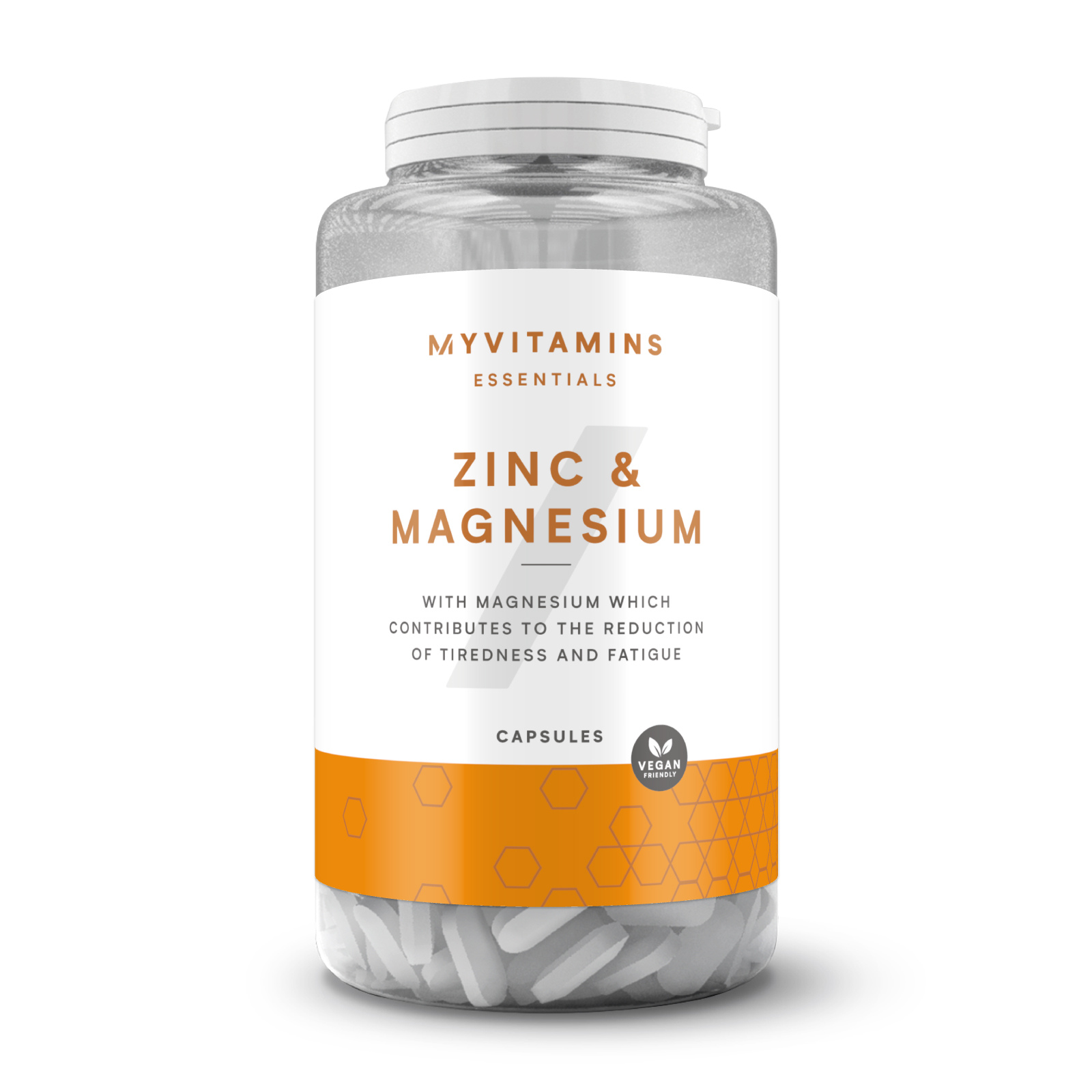Magnesium and Zinc: The Key to Spacing These Two Essential Sleep/Immune Boosters
In the grand tapestry of human health, where countless threads intertwine to create a vibrant picture of well-being, two minerals stand out with particular brilliance: Magnesium and Zinc. Often lauded individually for their profound impacts on everything from cellular energy to immune defense, and critically, to the elusive art of restorative sleep, they are titans in their own right. Yet, like two powerful magnets, their proximity requires careful management. The story of Magnesium and Zinc isn’t just about their individual strengths; it’s about their dance, their subtle interplay, and the nuanced strategy required to unlock their full potential. For the knowledgeable seeker of optimal health, understanding how to space these essential sleep and immune boosters is not merely a suggestion – it is the key to mastering their combined power.
This is a journey into the heart of mineral synergy and gentle antagonism, a narrative that moves beyond simple supplementation to a deeper appreciation of physiological intelligence. We will uncover why these two minerals are indispensable, explore the intricate mechanisms behind their benefits, reveal the subtle reasons for their competitive absorption, and finally, chart a practical course for their strategic deployment within your daily regimen.
Chapter 1: The Solo Stars – Unveiling the Power of Magnesium
Let us first draw back the curtain on Magnesium, often hailed as the "Maestro of Metabolism" or the "Relaxation Mineral." Its roles are so ubiquitous and fundamental that its deficiency is, quite frankly, a silent epidemic. Estimates suggest that up to 80% of adults may not be meeting their daily magnesium requirements, leading to a cascade of subtle yet debilitating symptoms that are often misdiagnosed or simply dismissed as part of modern life.
Magnesium: The Cellular Conductor
Magnesium is a cofactor in over 300 enzymatic reactions in the body. Imagine an orchestra where Magnesium is the conductor, ensuring every instrument plays in harmony, every note strikes true. Without it, the symphony of life quickly descends into cacophony.
- Energy Production (ATP Synthesis): Every molecule of ATP (adenosine triphosphate), the primary energy currency of your cells, must bind to a magnesium ion to become biologically active. Without sufficient magnesium, your body’s energy production grinds to a halt, leading to fatigue and sluggishness.
- Muscle and Nerve Function: Magnesium is critical for nerve impulse transmission and muscle contraction and relaxation. It acts as a natural calcium channel blocker, preventing excessive calcium influx into cells, which can lead to muscle spasms, cramps, and even migraines. It promotes smooth muscle relaxation throughout the body, from the cardiovascular system (helping regulate blood pressure) to the digestive tract (aiding bowel regularity).
- Protein, DNA, and RNA Synthesis: Magnesium is intimately involved in the synthesis of proteins, nucleic acids (DNA and RNA), and glutathione, the body’s master antioxidant. This makes it crucial for cell growth, repair, and overall cellular integrity.
- Blood Glucose Control: Magnesium plays a vital role in insulin secretion and sensitivity. Adequate magnesium levels help regulate blood sugar, reducing the risk of insulin resistance and type 2 diabetes.
Magnesium: The Architect of Restful Sleep
For those battling the modern scourge of sleeplessness, Magnesium often emerges as a beacon of hope. Its profound impact on sleep quality is multifaceted:
- GABA Activation: Magnesium binds to and activates gamma-aminobutyric acid (GABA) receptors in the brain. GABA is the primary inhibitory neurotransmitter in the central nervous system, meaning it calms neural activity. By enhancing GABAergic function, magnesium promotes relaxation, reduces anxiety, and prepares the brain for sleep.
- Melatonin Regulation: While not directly synthesizing melatonin, magnesium is involved in the enzymatic pathways that convert tryptophan to serotonin and then to melatonin, the hormone that regulates sleep-wake cycles.
- Muscle Relaxation: By relaxing muscles and reducing nervous excitability, magnesium alleviates common physical discomforts that interfere with sleep, such as restless legs syndrome and nocturnal leg cramps.
- Stress Reduction: Chronic stress depletes magnesium, and magnesium deficiency exacerbates stress. It’s a vicious cycle. Supplementing with magnesium can help break this cycle by modulating the body’s stress response system, calming the HPA axis (hypothalamic-pituitary-adrenal axis).
Magnesium: The Immune Modulator
While often overshadowed by Zinc and Vitamin C in the immune conversation, Magnesium is a crucial, albeit subtle, player in immune health:
- Anti-inflammatory Properties: Magnesium helps reduce chronic low-grade inflammation, a precursor to many chronic diseases and a factor that can suppress immune function. It regulates C-reactive protein (CRP) levels, a key marker of inflammation.
- Cellular Defense: By supporting ATP production and DNA synthesis, magnesium ensures immune cells have the energy and structural integrity needed to function effectively.
- Vitamin D Activation: A lesser-known but critical role is its necessity for the activation of Vitamin D, which itself is a powerful immune modulator. Without sufficient magnesium, even high doses of Vitamin D may not be fully utilized by the body.
Forms of Magnesium: A Nuanced Choice
Not all magnesium supplements are created equal. The bioavailability and specific benefits vary significantly:
- Magnesium Glycinate: Highly bioavailable and well-tolerated, with the added calming effect of glycine. Ideal for sleep and anxiety.
- Magnesium L-Threonate: Uniquely crosses the blood-brain barrier, showing promise for cognitive function and memory, in addition to sleep benefits.
- Magnesium Citrate: Good for bowel regularity due to its mild laxative effect; also decent for general supplementation.
- Magnesium Malate: Often favored for energy production and muscle pain due to its role in the Krebs cycle.
- Magnesium Oxide: Poorly absorbed; primarily used as a laxative due to its osmotic effect. Generally not recommended for correcting deficiency.
Chapter 2: The Guardian – Decoding the Essentials of Zinc
Now, let us turn our attention to Zinc, often heralded as the "Guardian of Immunity" and a fundamental "Cellular Architect." If magnesium is the orchestra conductor, zinc is the chief architect, overseeing the construction and maintenance of cellular structures and ensuring the proper functioning of countless biological processes. Like magnesium, zinc deficiency is remarkably common, particularly among vegetarians, vegans, the elderly, and those with certain digestive disorders.
Zinc: The Cellular Architect
Zinc is a vital component of over 300 enzymes and is involved in thousands of biological functions. Its ubiquity underscores its critical importance:
- Enzyme Cofactor: From DNA synthesis and repair to protein metabolism and carbohydrate utilization, zinc’s role as an enzyme cofactor is unparalleled. It’s essential for cell division, growth, and tissue repair.
- Gene Expression: Zinc finger proteins, a class of proteins that bind to DNA, are crucial for regulating gene expression. This means zinc plays a direct role in how our genes are turned on and off, influencing everything from development to disease resistance.
- Wound Healing: Its role in cell proliferation and protein synthesis makes zinc indispensable for wound healing and skin integrity.
- Taste and Smell: Zinc is critical for the function of taste buds and olfactory receptors, which is why a loss of taste or smell can be a symptom of deficiency.
Zinc: The Sentinel of the Immune System
Zinc’s reputation as an immune booster is well-earned. It is a frontline defender, directly impacting both innate and adaptive immunity:
- Immune Cell Development and Function: Zinc is essential for the normal development and function of immune cells, including T-lymphocytes (T-cells), B-lymphocytes, and natural killer (NK) cells. Without sufficient zinc, these cells cannot mature or function effectively, leaving the body vulnerable to infections.
- Antiviral and Antibacterial Properties: Zinc has direct antiviral properties, inhibiting the replication of various viruses. It can also help to reduce inflammation during an immune response, preventing collateral damage to healthy tissues.
- Antioxidant Defense: Zinc is a component of superoxide dismutase (SOD), a powerful antioxidant enzyme that protects cells from oxidative damage, which is often heightened during an immune response.
- Thymus Gland Function: The thymus gland, where T-cells mature, is highly dependent on zinc. Zinc deficiency can lead to thymic atrophy and impaired T-cell function.
Zinc: A Quiet Contributor to Sleep
While Magnesium takes center stage for sleep, Zinc plays a supporting, yet significant, role:
- Melatonin Synthesis: Zinc is a cofactor for the enzyme that converts serotonin to N-acetylserotonin, a precursor to melatonin. Thus, adequate zinc levels indirectly support melatonin production, which is crucial for regulating the sleep-wake cycle.
- Neurotransmitter Modulation: Zinc influences several neurotransmitter systems, including GABA and serotonin, which are involved in mood regulation and relaxation, indirectly contributing to better sleep quality.
- Reduction of Inflammation: By reducing systemic inflammation, zinc can help alleviate chronic pain and discomfort that might otherwise disrupt sleep.
Forms of Zinc: Optimizing Absorption
Similar to magnesium, the form of zinc matters for absorption and efficacy:
- Zinc Picolinate: Highly bioavailable and often recommended for addressing deficiency.
- Zinc Gluconate/Acetate: Common forms found in lozenges for cold symptom reduction; generally well-absorbed for oral supplementation.
- Zinc Citrate: Another well-absorbed and commonly used form.
- Zinc Sulfate: Less bioavailable and more likely to cause stomach upset.
Chapter 3: The Interplay – Why Spacing is Not Just a Good Idea, But Essential
Now we arrive at the heart of our story: the intricate relationship between Magnesium and Zinc. Individually, they are powerhouses. Together, they form a formidable team for sleep and immune health. However, their biochemical pathways, particularly concerning absorption, necessitate a strategic approach to supplementation. This is where the concept of "spacing" transforms from a mere convenience into a critical factor for optimizing their benefits.
The Subtle Antagonism: The Divalent Cation Dance
The primary reason for spacing Magnesium and Zinc lies in their shared absorption pathways. Both are divalent cations (minerals with a +2 charge), and they compete for the same transporters in the small intestine.
- Competitive Absorption: When taken simultaneously, especially in high doses, magnesium can inhibit the absorption of zinc, and vice-versa. This competition means that your body may absorb less of both minerals than it would if they were taken separately. It’s like two people trying to squeeze through a narrow doorway at the same time – one will inevitably block the other, and neither gets through efficiently.
- The Iron & Calcium Factor: This competitive absorption extends to other divalent cations, most notably calcium and iron. This is why multi-mineral supplements can sometimes be less effective than individual mineral supplements taken strategically. If you are also supplementing with calcium or iron, the need for spacing becomes even more critical.
- Imbalance Risk: Chronic, un-spaced supplementation of high doses of one mineral could theoretically lead to an induced deficiency of the other, especially if dietary intake is already marginal. While rare with typical doses, it’s a consideration for those with pre-existing imbalances or specific health conditions.
The Profound Synergy: A Collaborative Masterpiece
Despite their competitive absorption, Magnesium and Zinc are deeply synergistic in their physiological roles, particularly concerning sleep and immunity. Their combined action creates a more robust effect than either could achieve alone.
Synergy for Sleep:
- GABA and Neurotransmitter Balance: Magnesium directly enhances GABA activity, while zinc indirectly supports the synthesis of melatonin and modulates other neurotransmitters. Together, they create a more profound calming and sleep-inducing environment in the brain. Magnesium relaxes the muscles, while zinc fine-tunes the hormonal signals.
- Stress Reduction: Both minerals are depleted by stress and help to modulate the stress response. By ensuring adequate levels of both, the body is better equipped to handle stressors, which are a common impediment to sleep.
Synergy for Immunity:
- Comprehensive Immune Support: Zinc is the direct immune cell architect and defender, while magnesium ensures those cells have the energy (ATP) to function and helps to activate Vitamin D, another critical immune player. Magnesium also calms excessive inflammation, allowing zinc-dependent immune processes to function optimally.
- Antioxidant Power: Both contribute to the body’s antioxidant defenses, protecting immune cells from oxidative stress during infection.
- Vitamin D Utilization: As mentioned, magnesium is essential for the activation of Vitamin D. Zinc also interacts with Vitamin D pathways, further highlighting their collaborative nature in immune regulation. A body replete in magnesium and zinc will utilize its Vitamin D more effectively, creating a robust immune shield.
The story here is clear: these minerals are a team, but a team that performs best when its members have their individual moments to shine before coming together for the grand performance.
Chapter 4: The Art of Spacing – Practical Strategies for Optimal Benefit
Understanding the "why" now leads us to the "how." Strategic spacing of Magnesium and Zinc is the practical application of this knowledge, designed to maximize absorption, minimize competition, and amplify their individual and synergistic benefits.
The Golden Rule: Separate by at Least 2-4 Hours
The most straightforward guideline is to separate the intake of Magnesium and Zinc supplements by at least 2-4 hours. This allows each mineral sufficient time to be absorbed without significant competition from the other.
Timing for Targeted Benefits: Morning vs. Evening
Beyond simple separation, we can leverage the unique benefits of each mineral to optimize timing:
Magnesium: The Evening Ritual (The Sleep & Relaxation Mineral)
- Recommendation: Take Magnesium in the evening, preferably 30-60 minutes before bedtime.
- Why:
- Sleep Promotion: This timing aligns perfectly with Magnesium’s primary role in promoting relaxation, calming the nervous system, and preparing the body for sleep. Its GABAergic effects, muscle relaxation, and stress-reducing properties are best utilized as you wind down.
- Reduced GI Upset: Some forms of magnesium (e.g., citrate) can have a laxative effect. Taking it in the evening allows the body to process it overnight, minimizing potential daytime discomfort.
- Consistency: Integrating it into a bedtime routine makes it easier to remember and maintain consistent supplementation.
- With or Without Food? Magnesium can be taken with or without food. If you experience any stomach upset (rare with well-tolerated forms like glycinate or L-threonate), taking it with a light snack can help. Avoid taking it with large meals rich in phytic acid (found in grains and legumes) or oxalic acid (found in spinach), as these can slightly impair absorption.
Zinc: The Morning or Midday Boost (The Immune & Energy Mineral)
- Recommendation: Take Zinc in the morning or midday.
- Why:
- Immune Support: While the immune system works 24/7, zinc’s role in immune cell function and antioxidant defense is valuable throughout the day, especially when the body is active and potentially exposed to pathogens.
- Energy and Cognition: Zinc plays a role in energy metabolism and neurotransmitter function, which can be beneficial during waking hours.
- Potential for Nausea: Zinc, especially on an empty stomach or in higher doses, can sometimes cause nausea or stomach upset. Taking it with food (e.g., breakfast or lunch) can significantly mitigate this.
- Separation from Magnesium: This timing naturally creates a significant window between zinc and evening magnesium intake.
- With Food is Preferred: Due to the potential for GI upset, taking zinc with a meal is generally recommended.
Illustrative Daily Schedule:
- Morning (with breakfast): Zinc supplement (e.g., 15-30mg Zinc Picolinate/Gluconate). You could also consider Vitamin D and a B-complex at this time.
- Evening (30-60 minutes before bed): Magnesium supplement (e.g., 200-400mg Magnesium Glycinate/L-Threonate).
Other Considerations for Optimal Spacing:
- Calcium and Iron: If you are also supplementing with calcium or iron, remember they too are divalent cations and will compete with Magnesium and Zinc.
- Calcium: Often best taken in smaller doses throughout the day, or with the evening magnesium if your goal is sleep, but avoid taking large doses simultaneously.
- Iron: Generally recommended to be taken on an empty stomach for best absorption (unless it causes severe GI upset), typically in the morning or midday, away from Zinc, Magnesium, and Calcium.
- Dosage: Stick to recommended dosages. Higher doses exacerbate competitive absorption and increase the risk of side effects.
- Magnesium: RDA is around 300-420mg/day, but therapeutic doses can be higher, often 400-600mg, especially for sleep or muscle issues.
- Zinc: RDA is 8-11mg/day, with typical supplementation doses ranging from 15-30mg/day. Long-term supplementation above 40mg/day can lead to copper deficiency and is generally not recommended without medical supervision.
- Individual Response: Pay attention to your body. Some individuals may be more sensitive to GI upset or notice specific benefits at different timings. Adjust as needed.
- Gut Health: Optimal absorption of all minerals relies on a healthy digestive system. Address any underlying gut issues (e.g., leaky gut, low stomach acid) for better nutrient assimilation.
Chapter 5: Beyond Supplements – The Foundation of Dietary Intake and Lifestyle
While supplements play a crucial role in correcting deficiencies and optimizing levels, especially given modern dietary challenges and soil depletion, it’s vital to remember that the foundation of nutrient intake should always be whole, nutrient-dense foods.
Magnesium-Rich Foods:
- Leafy Green Vegetables: Spinach, kale, Swiss chard (cooking can increase bioavailability by breaking down oxalates).
- Nuts and Seeds: Almonds, cashews, pumpkin seeds, chia seeds, flax seeds.
- Legumes: Black beans, lentils, chickpeas.
- Whole Grains: Brown rice, oats, whole wheat.
- Avocado: A delicious source.
- Dark Chocolate: The darker, the better (and a pleasant way to boost magnesium!).
Zinc-Rich Foods:
- Oysters: By far the richest dietary source of zinc.
- Red Meat: Beef, lamb, pork.
- Poultry: Chicken, turkey.
- Legumes: Chickpeas, lentils, black beans (though plant-based zinc is less bioavailable due to phytates).
- Nuts and Seeds: Pumpkin seeds, cashews.
- Dairy: Cheese, milk.
- Eggs: A good source.
Lifestyle Factors for Enhanced Sleep and Immunity:
No amount of supplementation can fully compensate for an unhealthy lifestyle. These factors synergize with Magnesium and Zinc for ultimate benefit:
- Stress Management: Chronic stress depletes both minerals. Incorporate practices like meditation, yoga, deep breathing, or spending time in nature.
- Sleep Hygiene: Maintain a consistent sleep schedule, create a dark and cool sleep environment, limit screen time before bed, and avoid caffeine and heavy meals late in the evening.
- Regular Exercise: Moderate physical activity improves sleep quality and strengthens the immune system. Avoid intense exercise too close to bedtime.
- Hydration: Water is essential for all metabolic processes, including nutrient transport and waste elimination.
- Balanced Diet: Emphasize whole, unprocessed foods, and limit sugar and inflammatory oils, which can deplete minerals and impair immune function.
- Sun Exposure (Vitamin D): Crucial for immune health, and as we’ve learned, requires magnesium for activation.
Conclusion: The Symphony of Intentional Well-being
The journey through the intricate world of Magnesium and Zinc reveals a powerful truth: optimizing health is not merely about identifying beneficial nutrients, but understanding their dance. It’s about respecting their individual powers and appreciating their collaborative potential, all while navigating the subtle currents of biochemical interaction.
For the knowledgeable audience, the story of Magnesium and Zinc is a compelling narrative of intentional well-being. It underscores that even with seemingly simple supplements, a thoughtful, strategic approach can unlock profound benefits for sleep and immunity. By spacing these two essential minerals, we move beyond generic advice to a personalized, physiologically intelligent regimen.
Embrace Magnesium as your evening ritual, a gentle conductor for calm and restorative sleep. Welcome Zinc into your morning or midday, a vigilant guardian bolstering your immune defenses throughout the day. This deliberate spacing transforms potential competition into harmonious synergy, allowing each mineral to shine brightly in its own right, before contributing to the magnificent symphony of your overall health.
Remember, while this guide provides comprehensive insights, individual needs vary. Consulting with a healthcare professional or a registered dietitian is always recommended to tailor supplementation to your specific health status and goals. With informed choices and strategic intent, you can truly master the art of leveraging Magnesium and Zinc, paving the way for deeper sleep, robust immunity, and a more vibrant, resilient life.







